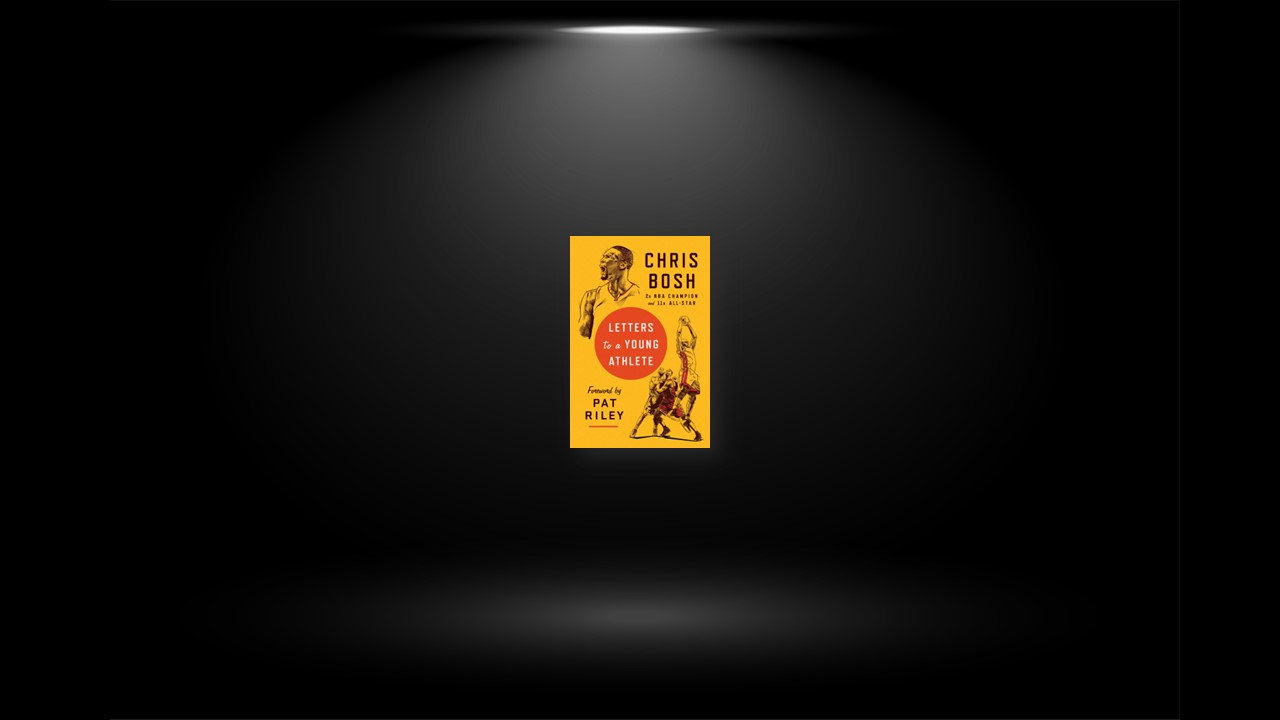Letter 1: When You Ain’t Nothing but Tired
You’re building your muscle. You’re becoming stronger mentally, you’re becoming more familiar with a kind of discomfort most people can’t stand. You’re building the strength that you’re going to need when the game is on the line, when something really important is on the line. You’re building supreme conditioning. The ability not just to keep going, but to want to keep going.
Your opponent is going to see this when you look them in the eye across the ball. They’re not going to see anything but how straight you’re standing and how they can’t believe you still have anything left. Remember, the other guy is dead-ass tired, too. When they look in your eyes and see that you’re ready to go another round—in that moment, their will to win will break. All that will be left will be mopping it up on the court.
That seems a long way off. Because right now, you’re just tired. You’ve got however many games left. Or you’ve got a long way left to rehab from that injury. You’ve got a massive deficit to overcome in your GPA or a gap to cover in your SAT scores if you want to make it to this college or that one. It’s so much. You’re so burned out. It’s almost like hell. But you know what they say? If you’re going through hell, keep going. That’s how it goes with this phase of your game. You have to keep going. And know that what’s coming out on the other side is a stronger, tougher, and harder-to-beat you.
Letter 2: You Have to Find Your Why (And It Can’t Be Fame or Money)
Waking up before dawn to run. Pushing through the criticism or the doubters. Getting back on the court after a full practice or a game, when all of your muscles are telling you to quit, and shooting a hundred more free throws. What is all of that for?
All the rewards of success aren’t whys—they’re more like hows. They’re tools for getting you where you want to go, but they’re not the destination. What is a why? Knowing—not just thinking, but knowing—that you’re making the most of your God-given talents. The joy of operating at the peak of your ability. The joy of being part of a team that runs like a well-oiled machine.
Whys change and evolve, just like people do. The key is to never invest your why in something external that can be taken away by a power beyond your control. It has to be deeper than winning and losing, or getting some free money to pay for college. It’s got to connect to your soul. It’s got to connect you to something bigger than yourself. It can’t be about the hardware. It’s got to be something hardwired, something infused in your DNA. If you have that? It’ll be like Mike Karney said. No opponent, no obstacle will want any part of you. You’ll be unstoppable.
Letter 3: The Gift of Hunger
To be great, you have to be hungry. You have to stay hungry. When it comes down to pulling in that last defensive rebound after you’ve been sprinting up and down the court for the better part of an hour, winning has to mean something. When it’s crunch time, when your body is screaming at you to stop pushing, the pain of losing has to be greater than the pain of crashing the boards or diving for a loose ball one more time. That’s hunger. When you think about the greats who can feel the pain of losing, or the joy of winning, so deep in their gut that it’s almost a physical sensation, realize that their hunger is just as important to their success as their height or their lung capacity or their 40 time or their why.
Life keeps moving, and even hunger—as much as it makes the difference between the merely good and the truly great—can get out of control. Get too hungry and you can end up eating yourself—obsessing over games that ended years ago, beating yourself up over mistakes from the past, risking your health and your body when you need time to recover and heal. And just as talented players without enough hunger to excel, players hungry for the wrong things—for stats but not for winning, for ego gratification but not team success, for money but not joy in playing the game. Remember, what you’re hungry for matters, too. That’s why letting yourself be motivated and inspired by teammates and coaches makes such a difference
Letter 4: Communication Is Key
When the game is on, when you’re bone-ass tired, when the crowd is roaring like it’s the Roman Colosseum, and it feels like your life is on the line, communication becomes—well, a lifeline. It’s what makes five individual athletes into a team—a group of guys who have each other’s back at the toughest moments.
All of that thinking, all of that anticipation and reaction, has to happen in the span of a few seconds, while you’re running at full tilt. Now, some of it is just automatic—that’s the point of practice. But some of it has to be figured out and communicated in real time. Because no matter how smart you are, and no matter how good your court vision is, there is more happening on the court at any one time than any one person can take in.
You need to be able to process the situation with five pairs of eyes, or you’re getting steamrolled. And you have to communicate it in a way that’s quick, unmistakable, and—just as important—comprehensible over the noise of twenty thousand screaming fans. It’s not enough to remember your responsibilities on the court. You have to be part of an organism that can adjust to change in real time. That’s communication.
Letter 5: Sweep Away Your Ego
Talent isn’t enough. You could make an entire league out of guys with NBA-level talent but not the NBA-level mentality. Whatever your goal is, you have the power to cultivate that same mentality—the mentality of confidence, not ego—right now. You have to assess your ego every time you make a decision. Stop and think to yourself, “Am I being egotistical right now? Am I putting my own success over team success? What would being a better teammate look like?”
Many years ago, Pat Riley wrote a book called The Winner Within. He calls ego “the disease of me.” I think that’s a great expression. And he talks about how it tears apart winning and losing teams, super-talented and less-talented athletes alike, with equal vigor. Of course, if you meet Pat, you’ll see he’s as hungry to win as anyone. He wants his teams to know what they can do. But that’s the operative word: they. Not me, me, me. Ego poisons success—confidence is necessary for success. Figuring out the difference is the most important realization a young athlete can ever make. And nothing else you do in your time in sports will serve you better as a human being than learning that lesson.
Letter 6: Leaders Lead
Being a leader means knowing your teammates, speaking to each one of them, letting them know that they all matter. But how many of us can really get past our egos and know our teammates on a meaningful level? That’s why leadership is hard—it means breaking out of your shell and your comfort zone when you don’t necessarily want to.
Leaders also model what it looks like to be a good follower. They can take orders and instruction from the coach, or from other teammates. They can show their teammates what it looks like to set ego aside. Just as leaders are part of something bigger than themselves, the idea of leadership is bigger than you think it is—bigger than a lot of people will tell you. If you think that the ultimate leader is going to walk through the door, or if you think you’re not cut out to be a leader because you don’t fit some stereotype you have in your head, you’re making a big mistake. Don’t wait on that person. Don’t wait to be that person. Don’t wait for that supreme leader who’s going to show you the way, or give you all the knowledge in the secret scrolls, or whatever you think it is. Most of the time, that person doesn’t exist.
But you do. Your skills are real. Your will to win is real. Your leadership potential is real. It’s up to you to figure out how to use it. Wherever your team is—whether it’s a rec league squad or a team at the highest level, whether you’re coming off a championship or a winless season—your team needs a leader. Every team does. And everyone has it in them to step up to the moment and offer the leadership their team needs. The leader your team needs right now can be you.
Letter 7: Take Care of Yourself
We forget, as far as athletes go, that it’s not just about getting in shape, but staying in shape. That no one can be great, consistently, without figuring out how to maintain and protect their body.
Think of it this way: If you owned a factory, the building and the machines inside it would be your capital, the things you own that let you make money by producing whatever it is the factory makes. If you took some of your profits and invested them back into the factory—by buying new machines, or by repairing the ones that broke down—you’d be able to go on making money. If you invested in more-efficient machines, maybe you’d even be able to make more money than before. But if you neglected those investments, the machines would eventually get old and break down, and one day you’d be out of business.
If you’re an athlete, the closest thing you have to that factory is your own body. It’s the capital that allows you to excel at your sport—and, given all we know about how connected the mind and body are, at other areas of life, too. If you’re a pro, investing in that asset is a strategy that literally pays off monetarily. But if you’re not, investing in your body still makes a difference—the difference between knowing that you’re performing at your peak and wondering if you left something on the table. In either case, your body is your greatest asset as an athlete. You have to protect it. You have to invest in it. If you don’t, the value of that asset is guaranteed to decline over time.


